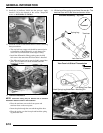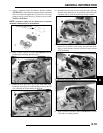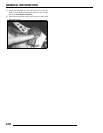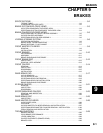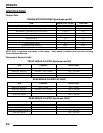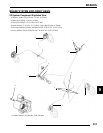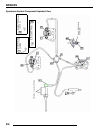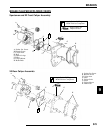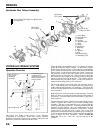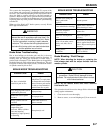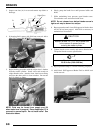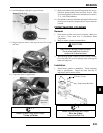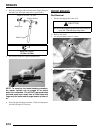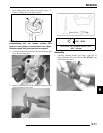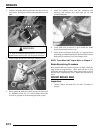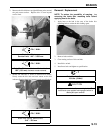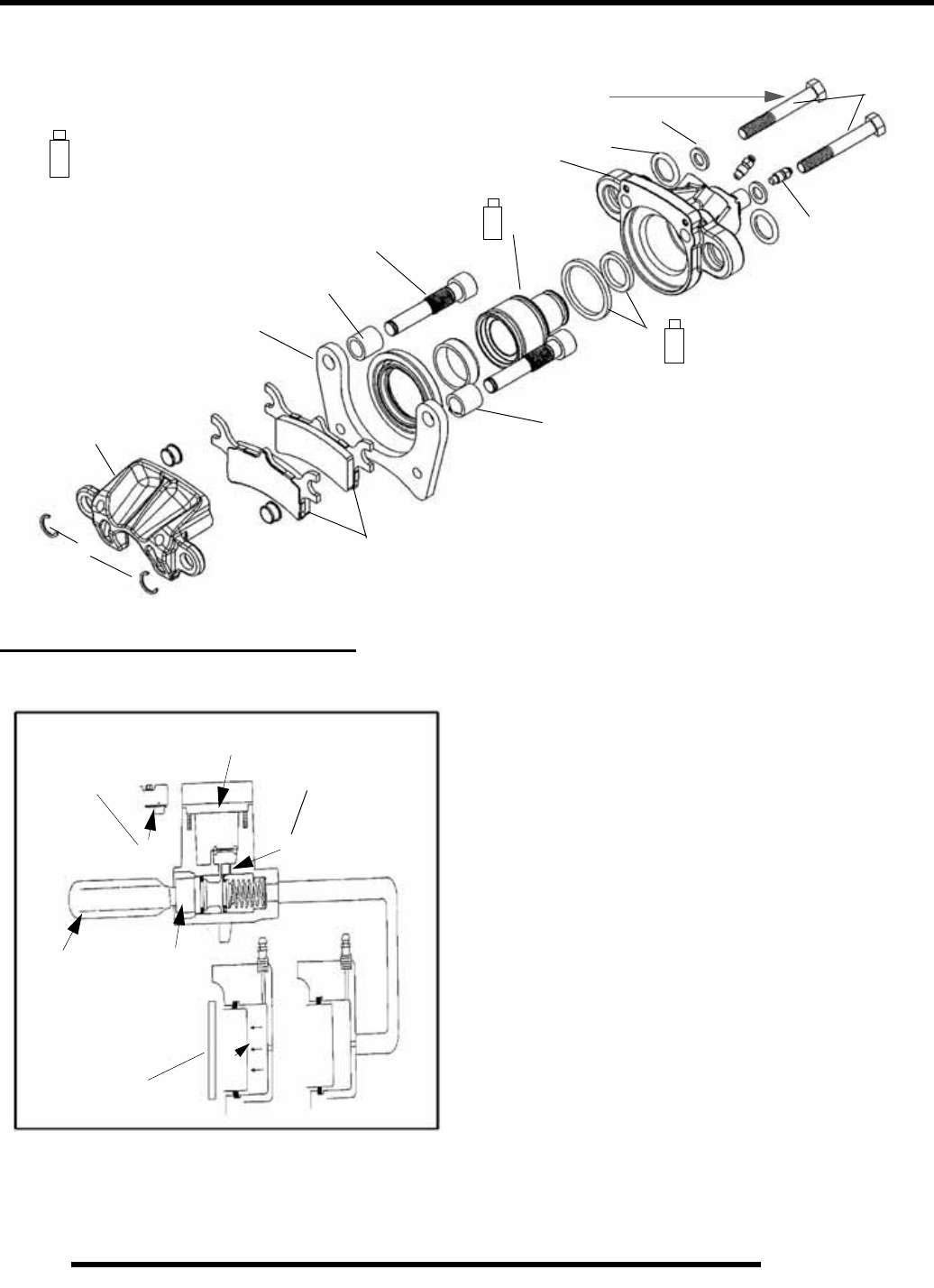
9.6
BRAKES
Sportsman Rear Caliper Assembly
HYDRAULIC BRAKE SYSTEM
Operation Overview
The Polaris disc brake system consists of the following
components or assemblies: brake lever; master cylinder;
hydraulic hose; brake calipers (slave cylinder); brake pads; and
brake discs, which are secured to the drive line.
When the hand activated brake lever (A) is applied it contacts
piston (B) within the master cylinder. As the master cylinder
piston moves inward it closes a small opening (compensating
port C) within the cylinder and starts to build pressure within the
brake system. As the pressure within the system is increased,
the piston (D) located in the brake caliper moves outward and
applies pressure to the brake pad. This pad contacts the brake
disc and moves the caliper in its floating bracket, pulling the
stationary side pad into the brake disc. The resulting friction
reduces brake disc and vehicle speed. As the lever pressure is
increased, the braking affect is also increased.
The friction applied to the brake pads will cause the pads to
wear. As these pads wear, the piston within the caliper moves
further outward and becomes self adjusting. Fluid from the
reservoir fills the additional area created when the caliper piston
moves outward.
Brake fluid level is critical to proper system operation. Too little
fluid will allow air to enter the system and cause the brakes to
feel spongy. Too much fluid could cause brakes to drag due to
fluid expansion.
Located within the master cylinder is the compensating port (C)
which is opened and closed by the master cylinder piston
assembly. The port is open when the lever is released and the
master cylinder piston is outward. As the temperature within the
hydraulic system changes, this port compensates for fluid
expansion (heated fluid) or contraction (cooled fluid). During
system service, be sure this port is open. Due to the high
temperatures created within the system during heavy braking, it
is very important that the master cylinder reservoir has adequate
space to allow for fluid expansion. Never overfill the
reservoir! Fill to 1/4, - 5/16, (.64 - .80 cm) from top of the
cylinder.
A. Anvil Bolts
B. Bleed Screws
C. Washers
D. O-rings
E. Rear Housing
F. Seals
G. Piston
H. Slide Pins
I. Bushings
J. Seal
K. Bracket
L. Pad
M.Front Housing
N. Retaining Clips
3
Apply Polaris DOT approved Brake fluid
to component.
A
B
C
D
E
F
G
H
I
J
K
L
M
N
3
3
30-35 ft.lbs.
(41-48 Nm)
25-30 in lbs.
(2.80-3.40 Nm)
16-18 ft.lbs.
(22-24 Nm)
AB
C
D
E
F
Must be clear to
allow proper
diaphragm
movement
Compensating port
compensates for
temperature changes by
allowing fluid back to
master cylinder
Move Brake Pad



